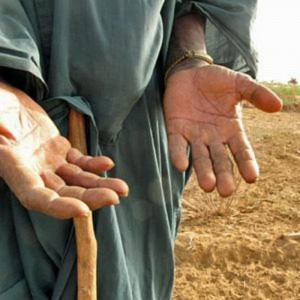Voice of America | 28 January 2010
Nico Colombant
Activists and researchers in the United States are raising the alarm on what they call the "land grab" in Africa. Outside governments and foreign corporations have been turning increasingly to African countries to purchase large areas of land, to the dismay of activists, who say economic mistakes of the past should not be repeated.
Oakland Institute executive director Anuradha Mittal recently co-authored a report called "The Great Land Grab."
"Land grab is the trend of buying up farmland by private investors from food-insecure, but rich nations in third world countries, especially in Africa, which is displacing people," said Anuradha Mittal. "But more important, it is called 'land grab' because it is the grabbing of resources, which are absolutely essential for ensuring food security in these countries."
From mid 2008 until late last year when its report was released, the Oakland Institute recorded 180 such land transactions, many of them in Africa.
In New York, the Institute of the Black World 21st Century recently organized a round-table discussion called the "New Scramble for Africa."
The group's president, Ron Daniels, explains.
"The first scramble for Africa was the carving up of Africa in the Berlin Congress of 1884 by various European powers," said Ron Daniels. "This looks like the new scramble, the 21st century version of it with nations like China, obviously leading the way because it has a tremendous appetite and then of course India, and Korea, and even some of the European nations, also, and some of the Arab nations."
Big contracts for land have been made across the continent in the past two years. Sometimes these were accompanied by celebrations, such as in January 2009, when the European multi-national Addax International partnered with Sierra Leone's government to make ethanol from sugar cane on thousands of hectares.
Qatar recently gained access to 40,000 hectares in Kenya for crop production, while China bought more than 100,000 hectares in Zimbabwe.
On the other side of the debate, investors, foreign buyers and local leaders say such long-term land leases will create thousands of jobs and bring in much needed revenue.
But Daniels says the types of jobs which would be created, such as day labor, security and local management, are not worth it. He says African governments should resist the initial temptation to sell away land and instead encourage local production and long-term welfare.
"That is a no-brainer," he said. "I would trade ownership and economic infrastructure for jobs any day, because if you own and you create infrastructure, you can generate jobs."
Investors also say better farming techniques will be brought to Africa, and that much of the food will be sold locally. Mittal does not believe these promises.
She points to the history of fruit plantations in South America and south-east Asia.
"We know when countries have given up the principles of food self-sufficiency, when they have forgotten to promote the interests of small-scale farmers, who are the producers of food in third world countries, we have only seen hunger grow," she said. "So it is not about whether we believe the corporations or not, we have to believe the evidence and the past experience that exists for communities around the world."
Oregon-based environmental journalist Bryan Nelson wrote a recent article in which he called the current African land grab "neo-colonial." But he believes it is still possible for local farmers to defend their rights.
"These farmers need to be organizing at a grass-roots level so that it is not just every individual farmer against these large multi-national corporations," said Nelson. "They need to make sure that they are going to benefit on a local level and that there are programs in place that are going to share the profits and the benefits of developing this land with that local community."
He also says foreign exports should be stopped whenever there is a food crisis in the country from which a company is operating.
Mittal is much more worried. She says African countries which have brought in massive investment for extracting oil, rubber and diamonds, despite some infrastructure also being built, have been marked by high levels of unrest, and that the same could happen for land. "It is the next blood diamond," said Mittal. "We are going to see more political instability, we are going to see more rioting, as people say enough is enough, this land is ours." She also warns of environmental degradation when large scale, industrial farming practices will be brought to unpolluted areas. Activists and investors do agree that after the world housing market collapsed, African land became a widely-sought cheap commodity. What they clearly disagree on is whether this trend is good or bad for local populations.












